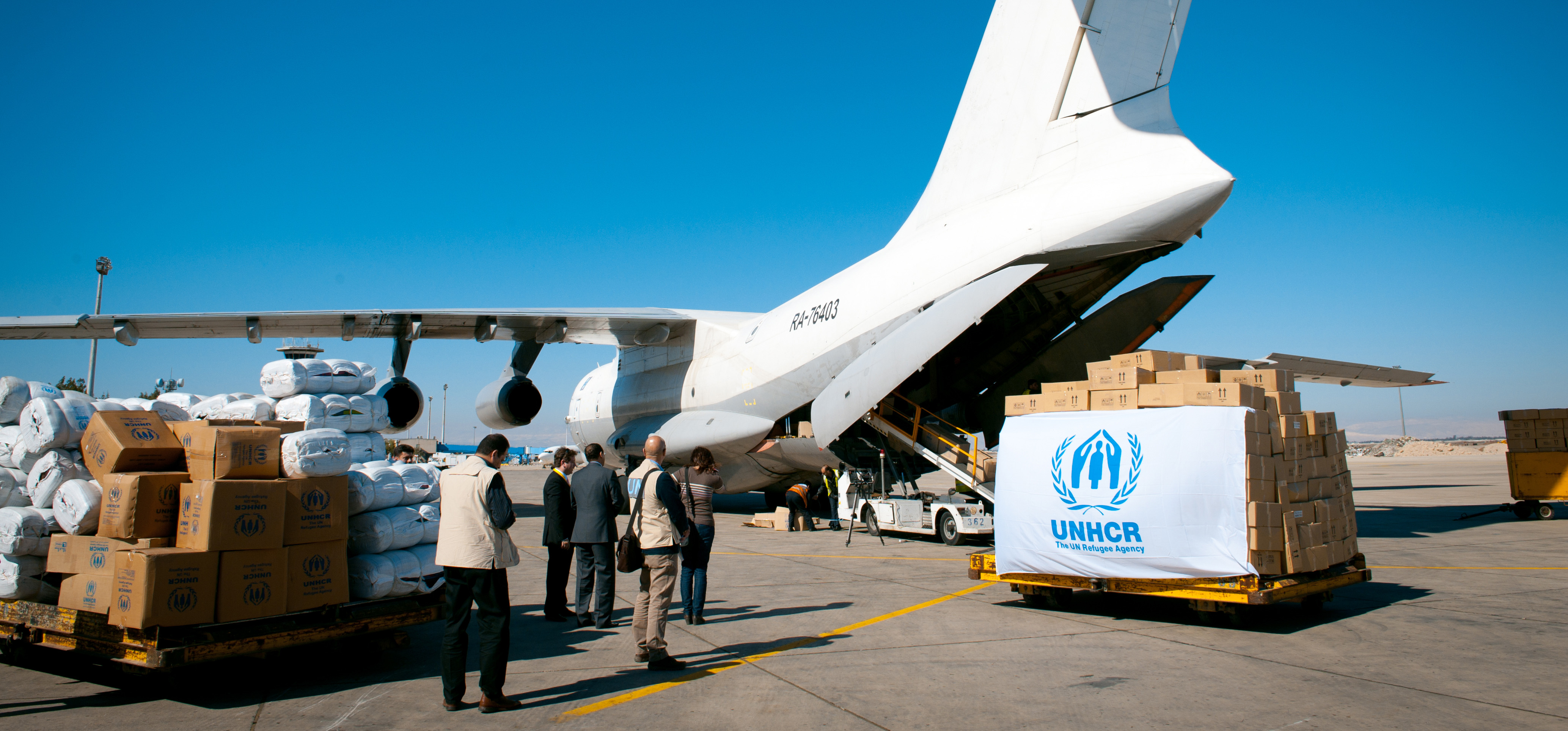Core Relief Items (CRIs) sometimes known as Non Food items (NFIs) are items other than food used in humanitarian contexts, when providing assistance to those affected by natural disasters or war. In Syria, UNHCR’s CRI kits include essential household items such as mattresses, blankets, plastic sheets, containers for water, cooking utensils and hygiene kits. In addition, other items can be added to the kits during times of extra hardship, such as rechargeable fans in very hot weather.
While fleeing for their lives, the displaced people often leave behind their livelihood, possessions and sources of income. Thus, seek for basic core relief items / non-food items (NFIs) when they arrive at the formal/informal settlements and/or at the receiving families.
UNHCR project targets to support Internally Displaced People (IDP) and other affected population in need with NFIs, prioritizing most vulnerable groups and the people in hard to reach.
In 2015 UNHCR in order to support the local economy, began sourcing and procuring some CRIs in Syria. Despite this, many goods remain unavailable because of the limited production capacity due to the crisis.
Across Conflict Lines
In its sixth year, the bloody inside Syria had killed more than 250,000 people and driven more than 4.8 million to flee to neighbouring countries alone. Of those who remain, more than 4.5 million people live in hard-to-reach areas or besieged towns.
UNHCR along with our humanitarian organizations on the ground spared no efforts trying to reach the civilians in hard-to-reach areas or besieged areas.
In 2015, 657,784 beneficiaries were reached through cross-line delivery including 471,033 people in 33 Hard-to-Reach areas, and since the beginning of 2016, and benefiting from the cessation of hostilities that began in February, the UN inter-agency efforts have led to over 50 convoys that brought lifesaving humanitarian supplies to almost 800,000 Syrians in need.
Winterization
The winter conditions caused great suffering to many Syrians, especially in contested and hard-to reach areas. Temperatures fell as low as minus 13 degrees centigrade in many areas in the country. The snowstorm Salam which hit Syria on 07 January 2015 caused chaos and further hardship for Syrians throughout the country with roads impassable, intermittent communications, electricity and fuel shortages resulting in many people being unable to heat their homes or themselves.
UNHCR urgently responded in cooperation with humanitarian workers from Implementing Partners by dispatching 150,000 CRIs such as mattresses, thermal blankets, sleeping mats, winter clothes and plastic sheeting to over 40,000 beneficiaries across Syria.
This year UNHCR began its winterization programme 2015 – 2016 in the second week of October with a prioritized target of 750,000 people using 150,000 winter kits. Out of 150,000 winter kits, 130,000 are being distributed through partners and field offices as part of the regular programme. The remaining 20,000 kits are part of the contingency stock for emergency response in case of a sudden new displacement. The standard winter kit is composed of winter clothes, thermal blankets and plastic sheets. Priority is given to the newly displaced individuals, people in hard-to-reach areas, people with specific needs and vulnerabilities such as unaccompanied minors or elders, single women as well as people with disability, mental health problems or serious medical conditions and chronicle diseases.

